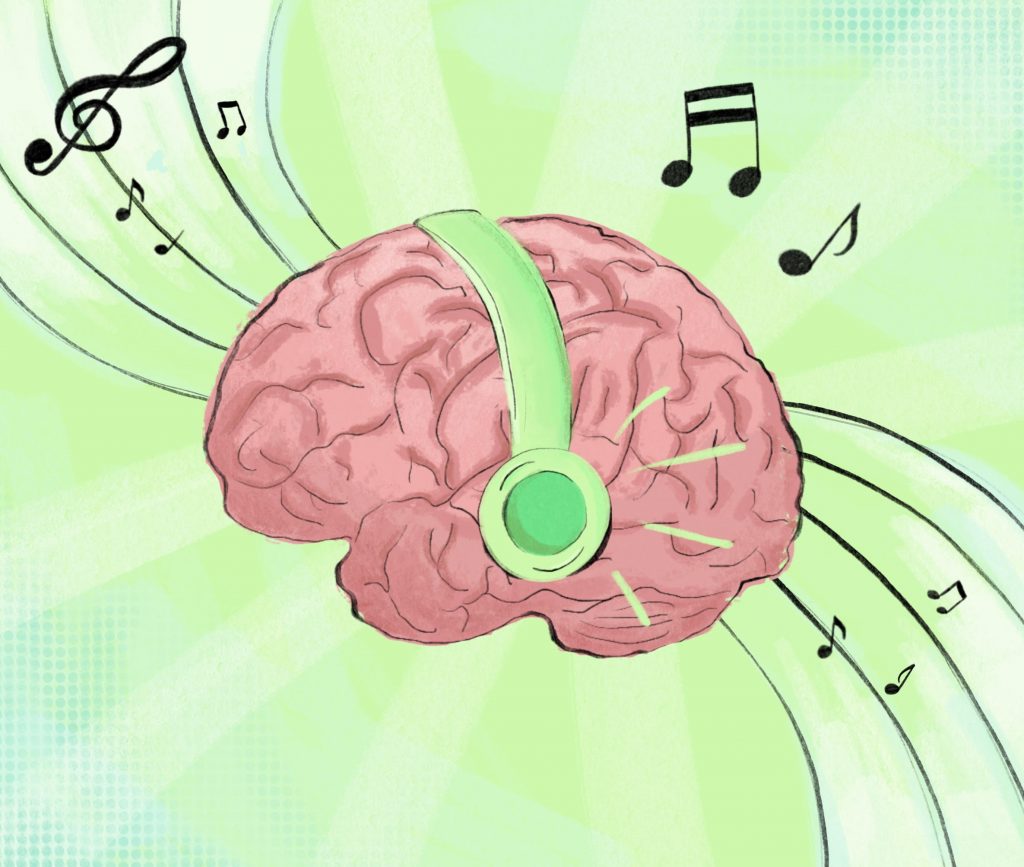As we enter into the fast pace of finals week, many students may find themselves scrambling to stay focused at home. Though music can’t transport you to your favorite study area in Glenn G. Bartle Library, studies show that playing the right tunes could sprinkle some of that “Bartle magic” onto your workload. In her New York Times article from 2012 “The Power of Music, Tapped in a Cubicle,” Amisha Padnani suggested that music may be the key to improving productivity.
Padnani presented the science behind music benefiting a person’s productivity. She referenced Dr. Amit Sood, a professor of medicine at Mayo Clinic College of Medicine in Rochester, Minnesota.
“In biological terms, melodious sounds help encourage the release of dopamine in the reward area of the brain, as would eating a delicacy, looking at something appealing or smelling a pleasant aroma,” Padnani wrote.
Dr. Sood wrote that non-lyrical music is best for regaining concentration and it takes 15 minutes to a half-hour of listening time to do so.
In 2016, a team at Melaka-Manipal Medical College conducted a study called, “The effect of listening to music on concentration and academic performance of the student: Cross-sectional study on medical undergraduate students.” Their research revealed the possibility of music improving the performance of students and provided evidence that “soft music” with slow tempos has a more positive effect on the performance of students over “other fast-track or instrumental music.”
Soft music will likely have a more positive effect on one’s studies because it is less likely to draw attention away from a student. The researchers said that music may either assist in concentration or get in the way of one’s focus. In moments where the music became louder and moved faster, the attentiveness of students would decrease.
“It naturally becomes a noise rather than music,” the researchers wrote. “This noise interferes with the ability of the student to perform a particular set of question(s) [and] that eventually might decrease their concentration.”
When studying for finals, students should search for music that is more calming rather than listening to high-speed/high-intensity music. The study showed that slower music has a tendency to improve the concentration results of participants.
“Upon assessing the type of music that works best in improving the concentration of participants of the present study, 75 percent of them seemed to have a better concentration with slow music,” the researchers wrote. “The lowest incidence was attributed to the task with no music, as only 31 percent of them were able to answer the entire question correctly.”
Dr. Teresa Lesiuk, director of the music therapy program at the University of Miami Frost School of Music, found that music has a positive effect on productivity the workplace. Lesiuk’s research found that productivity was at its lowest when there was no music in the workplace. The study also showed that music has a positive effect on the participants in the workplace.
Classical music is often labeled as the best genre of music for studying because of the “Mozart effect,” a theory in which listening to Mozart at a young age can make one smarter. This phenomenon came about after the 1993 study “Music and Spatial Task Performance” by Frances Rauscher, Gordon Shaw and Catherine Ky.
Lesiuk said that the study showed “small increases in spatial reasoning” and explained that there is a misconception that listening to Mozart makes people smarter. However, the “effect” was not attributed to Mozart as such, but to differences in arousal and mood.
In the upcoming week, students should turn toward soft non-lyrical music for a productivity boost. Whether you are playing Mozart, soft jazz or lo-fi music, non-lyrical music may give you the stimulation you need to get through your most difficult study nights.



